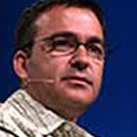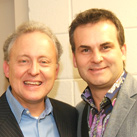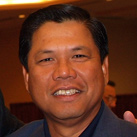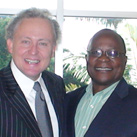Grace For Every Race: Acts Series #16

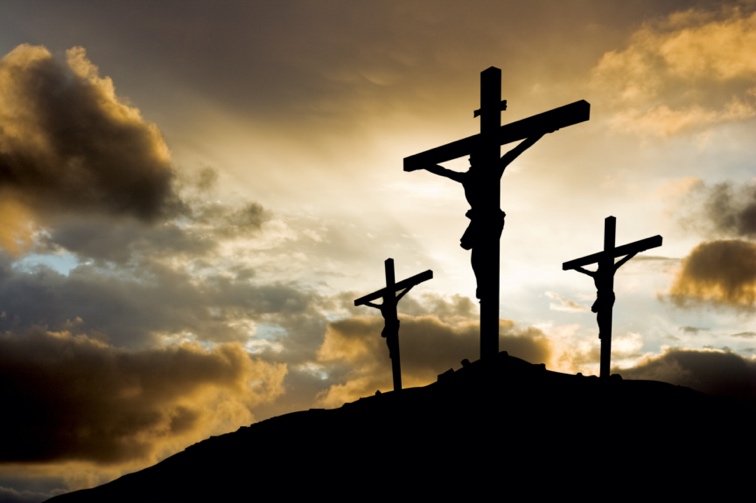 If you are not a lover of winning the lost, then you probably have not been won by the Lord. God had only one Son and He was a foreign missionary. Jesus left a holy place to come to a hellish place; He left a blessed place to come to a broken place; He left a sanctified place to come to a sinful place; He left his crown in heaven to be lifted up on a cross on a Calvary’s hill.
If you are not a lover of winning the lost, then you probably have not been won by the Lord. God had only one Son and He was a foreign missionary. Jesus left a holy place to come to a hellish place; He left a blessed place to come to a broken place; He left a sanctified place to come to a sinful place; He left his crown in heaven to be lifted up on a cross on a Calvary’s hill.
Jesus died the way He lived. In the Gospel narratives, Jesus lived with sinners and saints. On Calvary, He hung between two thieves. The one on the right received Him and the one on the left rejected Him. Jesus became the “link” between those who choose righteousness and those who choose unrighteousness. The cross became the greatest moral intersection of all time. It is at the cross where people turn right to heaven or left to hell. The light turned green at the cross for everyone to have the opportunity to go to heaven and to live forever.
As Jesus Christ was about to ascend to heaven, He pronounced the Great Commission (Matthew 28:18-20; Mark 16: 15-18). He commissioned His disciples to evangelize the whole world. They were not called upon to make decisions, but disciples. Their accomplishments were not to be measured by counting but by conversions. In the first century, the New Testament Church evangelized their world for Christ.
In Acts, chapters eight, nine and ten, we will witness the conversion of three notable persons. For example, look in Acts 8:27, we read, “And He arose and went and behold a man of Ethiopia.” Just underscore that phrase, “behold, a man of Ethiopia.” Where is Ethiopia? That’s Africa. That’s what we’ll call the third world.
In Acts 9:1, we read, “And Saul.” Where was Saul from? He was from the Middle East. He represents Asia. In Acts 10:1, we read, “And there was a certain man in Cicero called Cornelius.” He was a Centurion of the ban called the Italian Ban. He represents the west in general and Europe in particular.
In chapters eight through ten of the Book of Acts, the Great Commission is completed by the early Church. These three chapters form a unit on evangelism. They are a trilogy in missiology. In these chapters, the theme is grace for every race. If the contemporary Church is to evangelize the world today, then there are five undisputable truths that must be acknowledged and applied in our evangelism efforts.
Universal Sinner
 First, we must acknowledge there is a universal sinner. In chapters eight through ten of the Book of Acts, there were three men who had the same core problem in their lives. They were from different places and distinct races. The Ethiopian eunuch was from Africa, Saul was from Tarsus in Palestine, and Cornelius was an Italian from Caesarea. Their common problem was their human depravity or sinful nature.
First, we must acknowledge there is a universal sinner. In chapters eight through ten of the Book of Acts, there were three men who had the same core problem in their lives. They were from different places and distinct races. The Ethiopian eunuch was from Africa, Saul was from Tarsus in Palestine, and Cornelius was an Italian from Caesarea. Their common problem was their human depravity or sinful nature.
The man from Ethiopia, was a descendant of Ham. Noah had three sons that came out of the ark. Ham, Shem, and Japeth. They settled in different geographical areas of the world and the descendants of Ham settled primarily in Africa. This man of Ethiopia, he was a descendant of Ham.
Shem and his descendants settled in the area of the Middle East. We call them Semites. Saul, being a Jew, was a descendant of Shem. The descendants of Japheth settled in Europe. Then Cornelius was a son of Japheth. We have a microcosm of the world.
Even though one was the son of Ham, one was the son of Shem, and one was the son of Japheth, they were all sons of Adam. In Romans 5:12, we learned that in Adam all died. Everyone in this world has a sin problem.
Whether he’s from Africa, whether he’s from Asia, whether he’s from Europe, whether he’s from the United States, every man and woman has a sin problem.
There is a problem, it is a universal problem. The problem in Africa is sin. The problem in Asia is sin. The problem in Europe is sin, the problem in your city or town is simply sin.
The problem is not the environment. I’m for a better environment. Yet, I want to remind you that it was in a perfect environment, the Garden of Eden, that man got in trouble. You couldn’t have a better environment. The truth of the matter is, the more we have, the more we tend to forget God. Environment is not the answer. Jesus Christ is the answer.
America loves to talk about a war on poverty. But it’s not a war on poverty that people need, it’s a war on sin. Sin is the costliest thing around. The world has spent billions of dollars, trying to deal with the Aids epidemic. There has been a great increase in taxes and human misery. So many people have gone into the grave in anguish and pain. Where is the answer? What are we going to do? The answer is so simple if people would live by the laws of the Bible, the Aids problem would have diminished in several years.
All men and women have one problem, and that problem is sin. We are all sons of Adam. The social gospel says, we’ve got to help people to do better. But men and women do not need primarily a boost from beneath. They need a birth from above.
Every person is born in sin and is therefore a sinner. For example, people are not thieves because they steal. They steal because they are thieves. A corrupted character is the core of the problem in a person’s life. The root of the problem is not a racist society, lack of education, financial insecurity, glandular dysfunction, psychic disorder, but the sinful nature of people. This is basic to effective evangelism. Our foundation must precede our function in evangelism. It is grace for every race.
Universal Seeker
 Second, we must realize that there is an universal seeker. In these chapters, the Ethiopian, Saul, and Cornelius wanted to know the “truth.” They were looking for truth in three different ways. The Ethiopian read the Scriptures (Acts 8: 28-31), Saul resisted the Savior (Acts 9:4-5), and Cornelius reached out in supplication (Acts 10:2).
Second, we must realize that there is an universal seeker. In these chapters, the Ethiopian, Saul, and Cornelius wanted to know the “truth.” They were looking for truth in three different ways. The Ethiopian read the Scriptures (Acts 8: 28-31), Saul resisted the Savior (Acts 9:4-5), and Cornelius reached out in supplication (Acts 10:2).
People are looking for truth and meaning to life in different ways today. Many are turning to vices instead of virtues and to cults instead of Christ. The Gospel must be communicated in such a manner so they can comprehend the elements of salvation and enter into eternal life. Even though there is anger, resentment, and hostility toward the gospel like Saul of Tarsus on the surface of people’s lives; we must remember that if God can save us, then He can save anybody. God can take the world’s worst sinner, like Saul, and turn him into the world’s greatest Christian. It is grace for every race.
Let us look at the Ethiopian. In Acts 8:27, we read, “And He went and behold a man of Ethiopia, a Eunuch of great authority.” Here is a leader in the world of government. “And under candidacy, queen of the Ethiopians, who had the charge of all her treasurer.” He has his fingertips on the economic situation of a kingdom. But, notice what it says, and “he had come to Jerusalem for the worship.”
Now here was a man from the world of government and from the world of economics. He was a leader. He had wealth, power, and prestige, but there was an emptiness in his heart. His money, his wealth, his power, his prestige, had not met the longing in his heart. He has gone to Jerusalem to worship. He made a trip all the way to the Middle East. He had made a very long trip.
He had gone to Jerusalem for one thing only, he was seeking God. Even though he had gone to Jerusalem and the wells of religion were dry. Now, he’s coming back now, reading the prophet Isaiah, trying to understand what it meant.
In Acts 9:1-2, we read, “And Saul, yet breathing out threatenings and slaughter against the disciples of the Lord, went unto the high priest and desired of him letters to Damascus, and to the synagogues, that if he found any of this way, whether they were men or women, he might bring them down to uh Jerusalem.”
Saul is in the world of not politics and finance, but the world of Philosophy. He was a scholar. He would have the equivalency of a triple PhD. today. He was fluent in many languages. He was a man of culture, an erudite, self-confident, scholarly.
Saul had authority from a high priest to take Christians and lock them up and put them to jail. Everybody was afraid of Saul. Had you seen Saul there, you would have said here is a man who has it all figured out. Here is a man who is so self-confident in his philosophies. Yet, beneath the surface Saul is searching for truth. In Acts 9:5, Jesus appears to him and he says to Jesus, “Who art thou Lord? And the Lord said, I am Jesus whom thou persecuteth. It is hard for thee to kick against the bricks.”
What on earth does that mean? Jesus appears to Saul. There’s a bright light. The Lord speaks and Saul says, who are you? I am Jesus. Hard for you, isn’t it Saul!
Saul had seen Stephen stoned. He could never forget the face of Stephen that shone like an angel. Outwardly he was confident, but inwardly he had a hunger to know God. His religion and philosophy had not satisfied him.
Now, I want you to see Cornelius. He was also on a quest. In Acts 10:1-2, we read, “There was a certain man in Cicerea called Cornelius, a centurion of the ban called the Italian ban.” Now watch this. “A devout man, and one that feared God with all his house. Which gave much alms to the people and prayed to God always.”
Cornelius was not saved. He was generous. He prayed. He was devout. But he is not yet saved. He was a man who was a leader of a victorious army. Never had there been an army more victorious than the army of Rome to this time. They had conquered and subjugated the world and the world lived under the iron boot of Rome. And here’s a man with metals on his chest. He lives in the world not of Philosophy, not in the world of finance, but he lives in the world of fight. Rome knew how to crush her enemies. But all that power had not satisfied his heart.
Why did he pray and give his money? Because like the Ethiopian and Saul, he was on a quest. He was hungry. I don’t know how he got this hunger for God. Perhaps one night on a lonely century duty he looked up into the skies and he said, “ All of that just didn’t happen. Someone has made all of this. A God of might and power. And then he looked into his heart, and he felt that hunger and he began to pray. Oh God, whoever you are whatever you are wherever you are, oh God, I need you.”
Isn’t it interesting? These three men, from such different backgrounds. One from the world of government, one from the world of Philosophy, one from the world of the military. All three of them are on a quest of God. And none of them had been satisfied without it. Monetary power did not satisfy the Ethiopian. Mental power did not satisfy Saul. Military power did not satisfy Cornelius.
I’ve traveled around the world. I’ve met a lot of people. They come from different backgrounds. Every man and woman you’ll ever meet has the same problem: sin. Every man and woman you’ll ever meet has the same desire: God.
Universal Savior
 Third, we must be convinced that there is a universal Savior. In chapters eight through ten of the Book of Acts, Phillip, Ananias, and Peter preached Jesus Christ to the Ethiopian, Saul, and Cornelius, respectively (8:35; 9:5; 10:36). Jesus is the central theme of evangelism. Methods of presentation may need to change, but the message stays the same forever. There are many ways to happiness, but only one way to holiness. Holiness is not the way to Christ, but Christ is the way to holiness. Christ changes one’s character. People need to understand that they are not saved by “works” through “faith” in Christ, but by faith in Christ that works! It is grace for every race.
Third, we must be convinced that there is a universal Savior. In chapters eight through ten of the Book of Acts, Phillip, Ananias, and Peter preached Jesus Christ to the Ethiopian, Saul, and Cornelius, respectively (8:35; 9:5; 10:36). Jesus is the central theme of evangelism. Methods of presentation may need to change, but the message stays the same forever. There are many ways to happiness, but only one way to holiness. Holiness is not the way to Christ, but Christ is the way to holiness. Christ changes one’s character. People need to understand that they are not saved by “works” through “faith” in Christ, but by faith in Christ that works! It is grace for every race.
Who is the hope of the world? His name is Jesus. In Acts 8:35, we see who it was that met the hunger and the heart of that Eunuch. We read, “Then Philip opened his mouth and began at the same scripture and preached unto him” – grace relations? Preached unto him Economics? Preached unto him, social reform? We read, “He preached unto him saying, Jesus.”
In Acts 9:5, we pick up again the story of Saul. Saul said, “Who art thou Lord? And the Lord said unto him, I am Jesus.”
In Acts 10:38, we learn that Peter finally told Cornelius and family how God anointed Jesus of Nazareth with the Holy Ghost and with power, who went about doing good and healing all who were oppressed of the devil, for God was with him. Jesus. Jesus is the answer. This world needs Jesus Christ. There is no other need like the need for Jesus. You and I have the answer.
Universal Salvation
 Fourth, we must believe in a universal salvation. I am not writing about universalism. Neither am I say that all ways lead to the Father and to eternal life. More people are coming to Christ than in any other time on this earth. Do not ever think there will only be a handful of people in heaven. There will be billions of people in heaven. That’s right. You may say, “But narrow is the way and only a few find it.”
Fourth, we must believe in a universal salvation. I am not writing about universalism. Neither am I say that all ways lead to the Father and to eternal life. More people are coming to Christ than in any other time on this earth. Do not ever think there will only be a handful of people in heaven. There will be billions of people in heaven. That’s right. You may say, “But narrow is the way and only a few find it.”
There are some denominations and organizations that believe that their teachings are better than everyone else. They believe unless you believe like they do and do like they do, you will not make it to heaven. Well, I want to express it again. There will be billions of people in heaven. How can I be so certain?
At the time of this writing, there are more than 2 billion Christians on earth. If Christ was to come today, where would these Believers go? Heaven. In the last 30 years, more than one billion babies have been aborted. Where did they go? Heaven. How many “righteous ones” were there in the Old Testament? I don’t know but they all went to heaven. How many Christians have there been on earth in the last 2,000 years? I don’t know, but everyone of them, who have died, went to heaven. There will be billions of people in heaven!
When we share Christ through personal soul winning, or in local church crusades, people are going to experience salvation. In the Book of Acts, the Ethiopian, Saul, and Cornelius experienced salvation through Jesus Christ (8: 37; 9:6; 10:44). Even though they were in different places and from distinct races, God’s grace changed their lives forever.
God does not have to go some place to get to somewhere. He is everywhere at the same time. Whether someone is in America or Australia, South Africa or South America, Mexico or Morocco, Russia or Romania, Cuba or China, Tokyo or Tupelo, God’s grace is available in every place and to every race. The American Church must remember that even though our forefathers came to this country on different ships, we are all in the same boat now. We must learn to work together toward effective evangelism.
Universal Subpoena
 Fifth, we must be reminded of a universal subpoena. In chapters eight through ten of the Book of Acts, there was only one command issued to Phillip, Ananias, and Peter. This command was to “arise and go” (8:26; 9:11; 10:19-20). We must remember that Christ not only said, “come unto me,” but also, “arise and go.” Someone has noticed that one cannot spell good, God or gospel without the word “go.” We have been commanded to proclaim Christ to the nations.
Fifth, we must be reminded of a universal subpoena. In chapters eight through ten of the Book of Acts, there was only one command issued to Phillip, Ananias, and Peter. This command was to “arise and go” (8:26; 9:11; 10:19-20). We must remember that Christ not only said, “come unto me,” but also, “arise and go.” Someone has noticed that one cannot spell good, God or gospel without the word “go.” We have been commanded to proclaim Christ to the nations.
It is interesting to further note that Philip, Ananias, and Peter represented different levels of leadership in the New Testament Church. Philip was first a deacon who later became an evangelist. If you are deacon and not a soulwinner, then you should resign immediately.
Ananias was a layman. Who was Ananias? We don’t know. He’s just an unknown layman. If are you are a worker in your church, then you are a lay worker. What is the command to every laid person in the world? Arise and Go.
Peter was a Pentecostal preacher. What’s the command to Peter? Arise and go.
All deacons, laypeople, and preachers are to be soul winners. Regardless of the level of leadership in the local church, the command is to “arise and go.” Are you a soul winner? Do you share Christ with unsaved friends? Do you firmly believe that God’s grace is for every race? Do you harbor prejudice toward different races? When was the last time you told some lost person about the saving power of Christ? Have you ever won anyone to Christ?
They all need somebody to help them. God didn’t just zap these men. God used human instruments. They needed somebody to point them to Jesus Christ. Each one of them is told to go.
No one is excluded from the command to arise and go to lost people. I don’t care if you are a deacon, I don’t care if your a layman, I don’t care if your a pastor. The command is to everyone. You may say, “Well God didn’t call me to go, he called me to preach, or God called me to teach, or God called me to sing.” My response is, “You need an old fashion revival, or a holy dose of salvation. A Christian who refuses to go is not missing a blessing, he’s guilty of high treason against heavens king.
You say well where am I supposed to go? Wherever the Lord tells you to go. Might be next door, it might be around the world. How am I to go? Well, some of you can go with your money. Some can go with your prayers. Some can go with your children. Some can go with your influence. Some can go with your testimony. Some can go with your physical body across the sea. It doesn’t matter how you do it, you do whatever God called you to do. But Christian is supposed to be a part of a great enterprise and that is telling this world about Jesus Christ.
You may say, “I’ve got other things to do.” There are three abilities that God needs out of you. If you let God do these three things through you, he’ll use you. The first ability is the best ability, and that is availability. Philip, who spoke to this Ethiopian, was down in Samaria, in the middle of a revival meeting. And he was led by the Holy Spirit out of Samaria, all the way up there to the Gaza Strip, into the desert, to meet one man. Why? Because he was available to God.
He knew he had heard from God. He’s available to God. Are you available? Itwon’t make any sense to ask you to make a commitment if your not available. Are you available? Are you willing to say to God, anytime, anyplace, anywhere, any cost, I am available? Availability. Be swift my soul to answer him. Be jubilant my feet. Our God is watching.
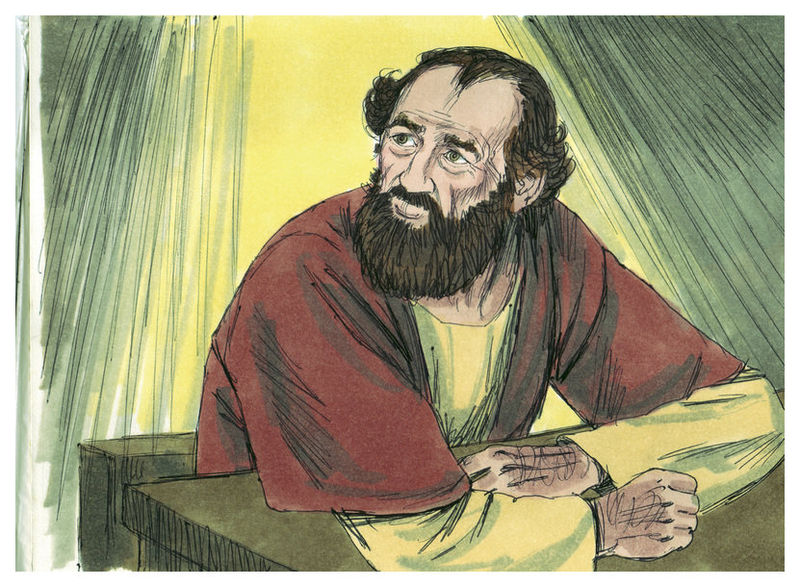 Second, we not only need availability, but expendability. God said to Ananias, “I want you to go and speak to this man Saul.”
Second, we not only need availability, but expendability. God said to Ananias, “I want you to go and speak to this man Saul.”
Ananias said, “Oh, well, Lord your talking about the same Saul that’s been putting people in prison?”
The Lord said, “Yeah, that’s the one.”
Are you talking about the same Saul who helped Stephen be stoned?, asked Ananias.
The Lord said, “Yep that’s the one.
You want me to go talk to him?, questioned Ananias.
Yes, I do, says the Lord.
With hesitancy, Ananias said, “When do you want me to go? The Lord said, “Right now.”
Ananias, said, “Well Lord, who’s going with me?”
Immediately the Lord said, “No one.”
“Lord would you repeat that, my hearing’s not what it used to be. Who’s going with me?, stated, Ananias.
Jesus quickly answered, “No one. Go to Saul.”
And Ananias went.
Do you know what that is? That is expendability. No matter what it cost I am willing to go. It doesn’t make any difference; I am willing to go.
Garibaldi united Rome. He was a great military leader. One time when things were going bad for Garibaldi he needed an army. He gathered his rag tagged followers around him. He called them his red shirts. And this is what Garibaldi said to them and I want you to think about it. He said, “I am going out from Rome. I offer neither quarters, nor provisions, nor wages. I offer hunger, thirst, forced marches, battles and death. Let him who loves me, not only with his head, but with his heart follow me.” And they went out and took it.
I believe Jesus Christ would say the same thing to each one of us. I am looking for followers, not followers who love me with their head only, but with their heart. Expendability. It cost to serve Jesus. It costs every day. It costs every step of the way.
Third, It takes adaptability. The Lord says to Peter, “Are you ready to go?”
Peter answers, “Sure I am Lord. What do you want me to do?”
Jesus says, Peter there’s a Gentile leader I want you to carry the Gospel to.”
Peter says to the Lord, “Wait a minute Lord. I’m a Jew; he’s a Gentile. You know, the Jews don’t fellowship with those Gentiles, Lord. Get somebody else please.”
The Lord says Peter, “I want to show you something. I want you to see a sheet coming out of heaven. And in that sheet are all kinds of animals. You have called all of these animals unclean. I want you to kill some of these and eat them.”
Peter says, “No. Lord I have never eaten anything unclean.”
God said to Peter, “Peter, what I have called clean, let no man call unclean.”
Peter, had to get rid of some of his prejudice. He had to get rid of some of his bias. He had to get rid of some of his stubbornness. He had to learn to adapt.
We are not going to change the gospel for anybody; we are not going to change the Word of God for anybody; We are not going to compromise the lordship of Christ for anybody. But we’ll do anything, anyplace, anywhere, to reach people for Jesus Christ.
What do we need today? We need simply availability, expendability, and adaptability. Whether you be a deacon, whether you be a layman, whether you be a preacher.
Dr. James Stewart, a distinguished professor of New Testament at the University of Edinburgh was absolutely correct when he stated, “The greatest threat to Christianity is not communism, atheism, materialism, or humanism, but Christians trying to sneak into heaven incognito without ever sharing their faith and becoming involved in the most significant work God is doing on earth.” If the contemporary Church does not evangelize this generation, then the Church will fossilize in the next generation. If we do not grow and go, then we will dry and die. There are no other options for the Church.
There are more people alive today on earth, than have ever died in the history of the world. Yet, there are five undisputable truths for effective evangelism. We must acknowledge and apply the truths of a universal sinner, seeker, Savior, salvation, and subpoena to our evangelism efforts now. It is God’s grace for every race. Will you “arise and go?”
Back To Blog
